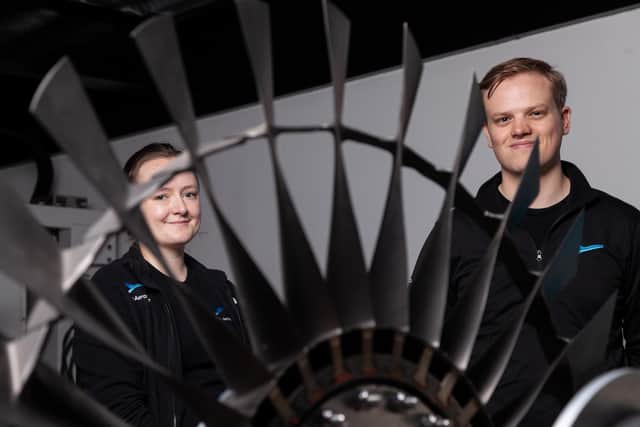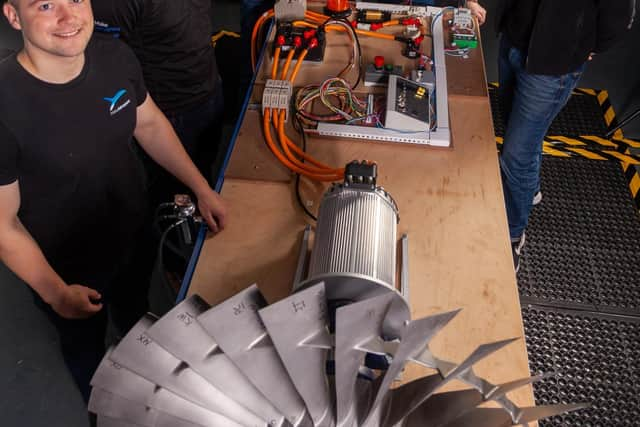World first all-electric jet engine claimed by Scottish firm Mako Aerospace
Rosyth-based Mako Aerospace said its prototype Forerunner engine was the “most efficient and light propulsion system in the world” and could be powered by batteries or hydrogen.
Chief executive Kieran Duncan said it could change current thinking that electric power might be limited to the smallest aircraft over short distances.
Advertisement
Hide AdAdvertisement
Hide AdHowever, one academic expert said such technology had not lived up to claims made about it in the past.


The news comes as the latest stage of the aviation industry’s race to develop zero-emission propulsion to replace kerosene, the traditional aircraft fuel.
Scottish airline Loganair has predicted the first of its aircraft would be converted to electric and/or hydrogen power for passenger flights in Orkney by 2024.
Easyjet, Scotland’s largest carrier, has said its passengers could be flying in hydrogen-powered aircraft by 2035.
Mako plans to demonstrate the engine in Edinburgh next month and make it commercially available within two years, with a view to it being manufactured in Scotland.


It aims to reduce fuel costs by 70 per cent compared to a traditional turboprop engine.
The company is headed by two University of Strathclyde graduates – Duncan, and Pia Saelen, with the engine being produced in partnership of the National Manufacturing Institute Scotland (NMIS), which is operated by the university.
Its website claimed: "Our engine … converts more energy to thrust than any other system on the market.
Advertisement
Hide AdAdvertisement
Hide Ad"It’s the most efficient and light propulsion system in the world by 4x and runs solely on electricity.
"Mako’s Forerunner is essentially the electric answer to the kerosene jet engine.”
Duncan said: “The Forerunner enables larger aircraft up to 40 seats and gives a current range of 600km [370 miles] using today's batteries”, while next-generation batteries could double that.
NMIS senior manufacturing engineer Dr Jill Miscandlon said: “The long-term goal of electric flight is the same for many within aerospace, but Mako is looking at more imminent solutions for short-haul flights that we hope could act as a stepping stone to further developments in the field.”
She said its “vast potential … may even convince some of the bigger players in the industry to invest in the future of electric aircraft”.
Dr Guy Gratton, a test pilot and Associate Professor of aviation and the environment at Cranfield University, questioned Mako’s use of the term “jet engine”.
He told The Scotsman: “Whilst this is not a jet engine as normally understood, but a ducted fan, such as was flown by Airbus on their E-Fan prototype at Farnborough Airshow in 2014, the concept is valuable.
"Electric flight is in its infancy and we all hope that with projects like this, [along with] Cranfield Aerospace Solutions' Project Fresson, ZeroAvia's HyFlyer and TLAC's EnabEl eKub, will help establish Britain in the lead of an important new field.
Advertisement
Hide AdAdvertisement
Hide Ad"We don't yet know what will or won't win the low emissions technology race, nor whether any individual technology will be as efficient as initially claimed.
"In most cases they won't, and historically, ducted fans haven't usually delivered on initial claims for either noise or efficiency.
“So, the more research like this going on, the better the chances of Britain winning out in innovation."
Comments
Want to join the conversation? Please or to comment on this article.
